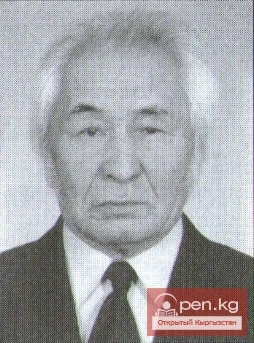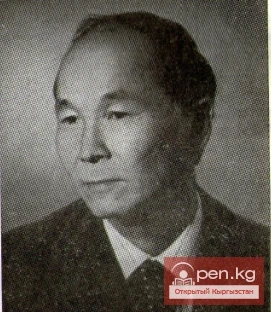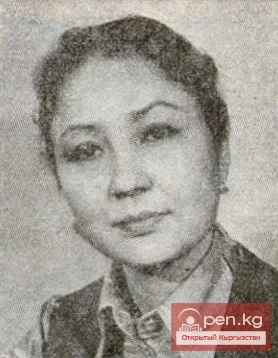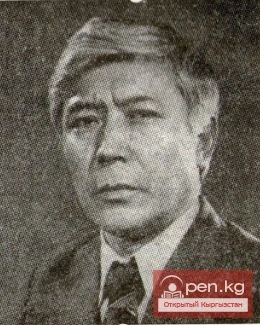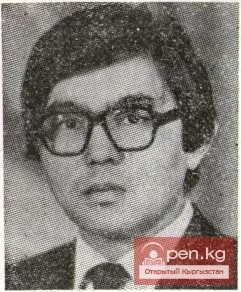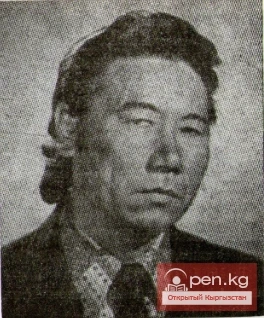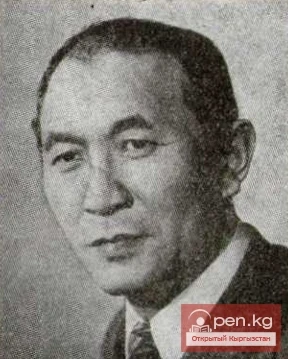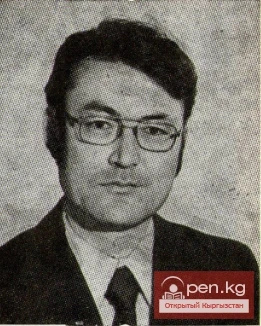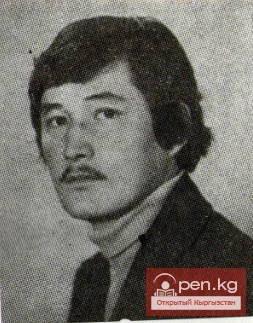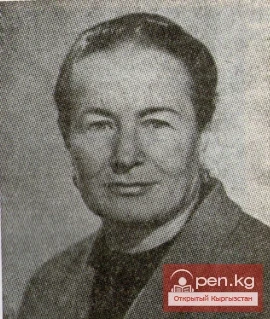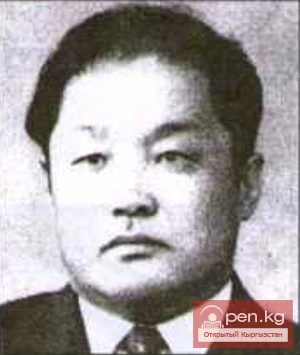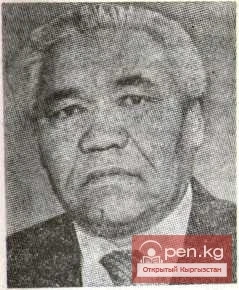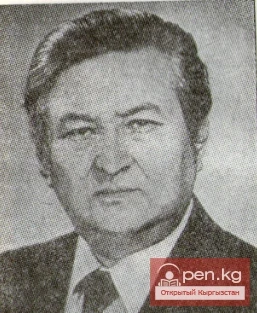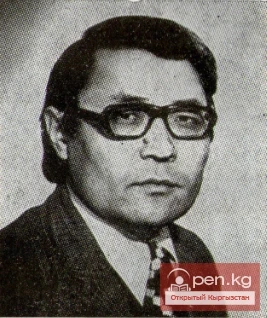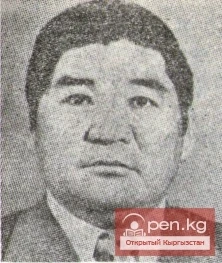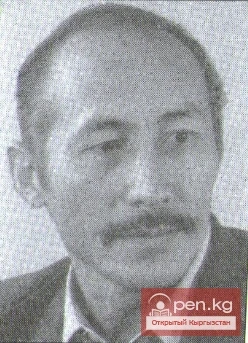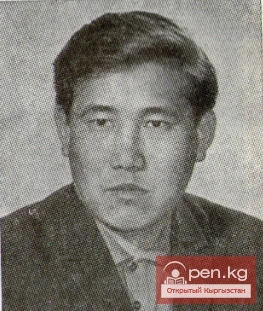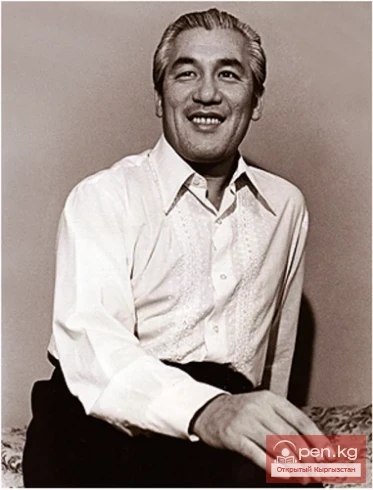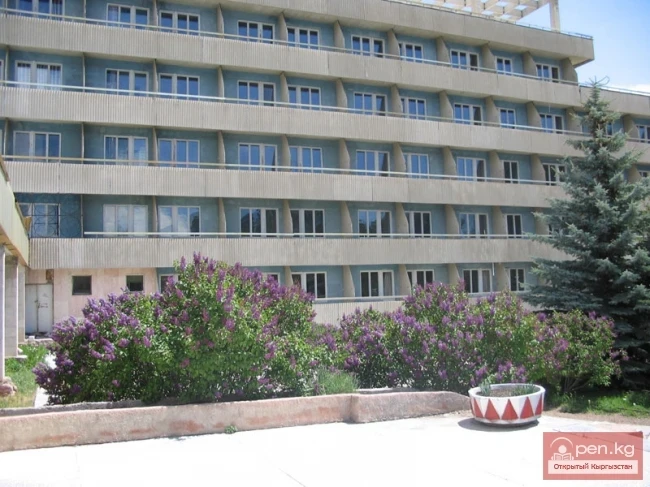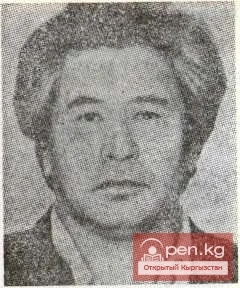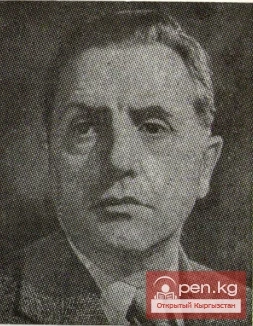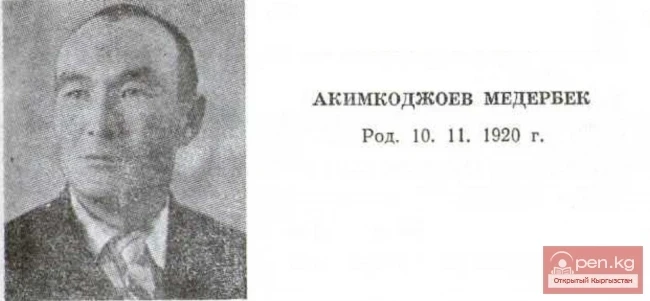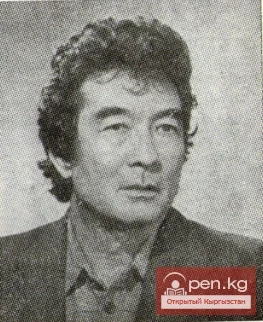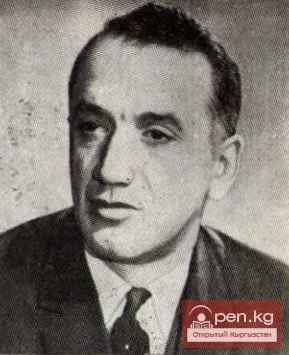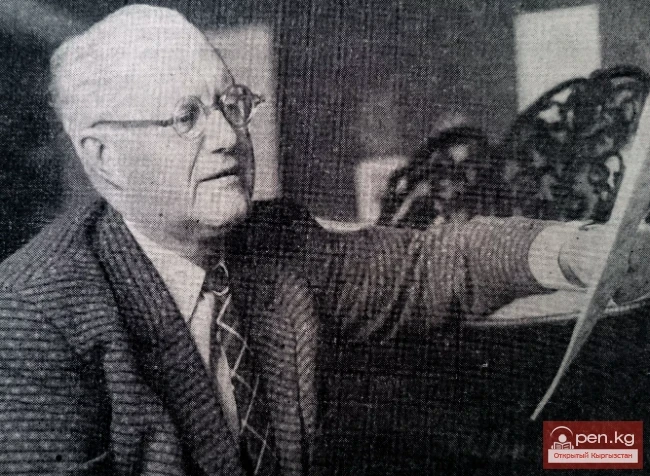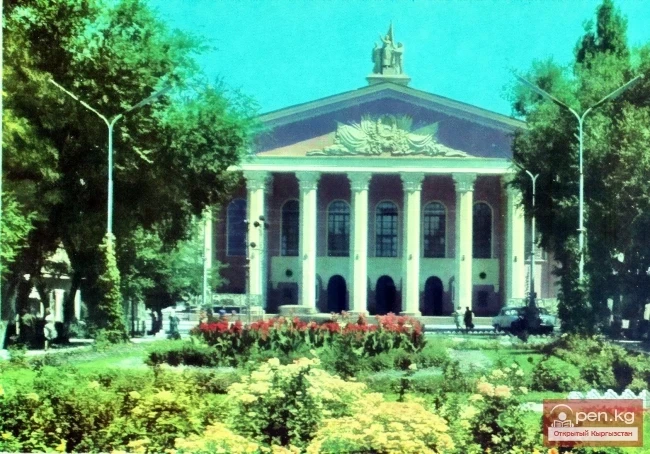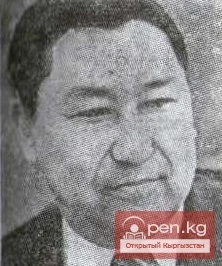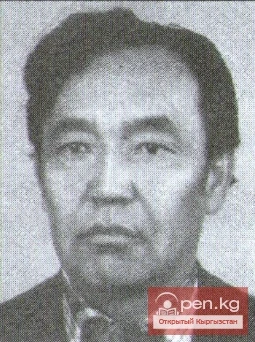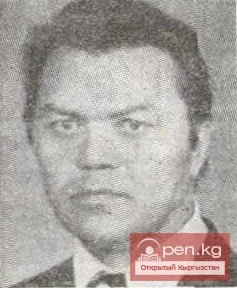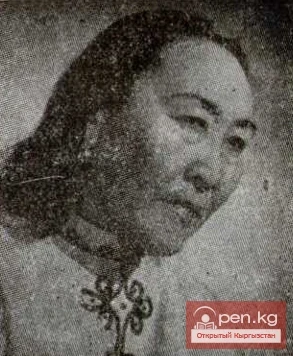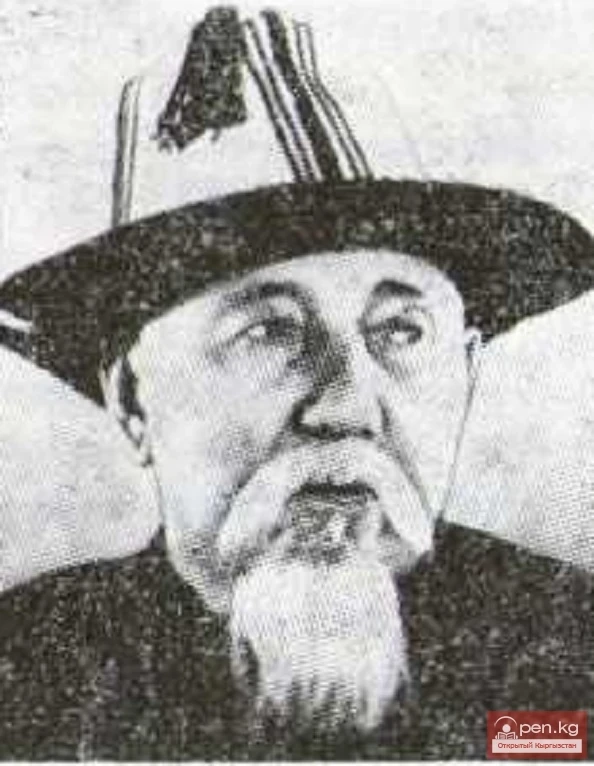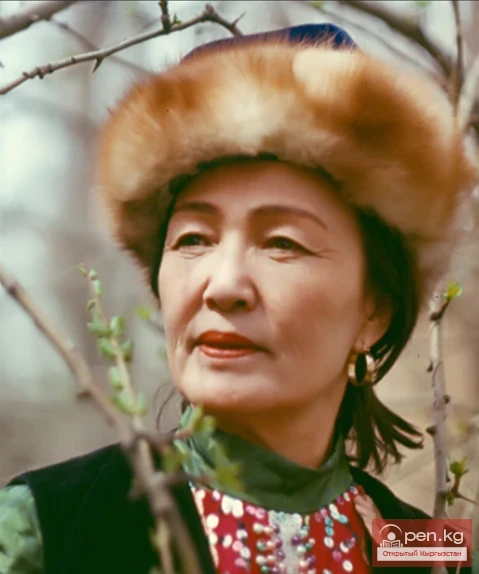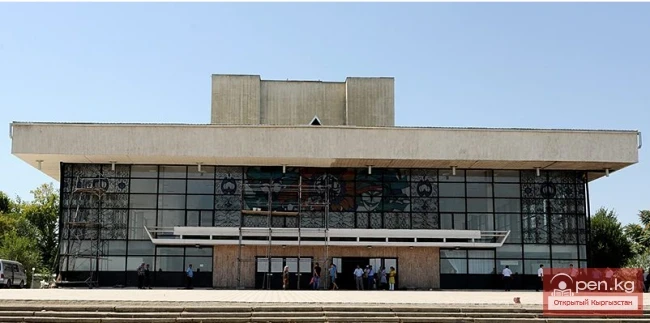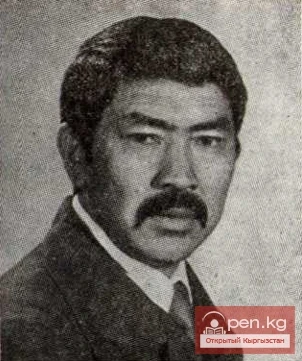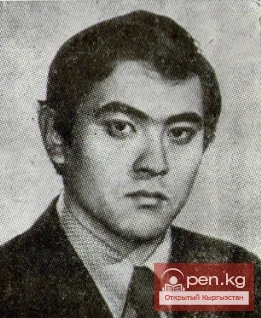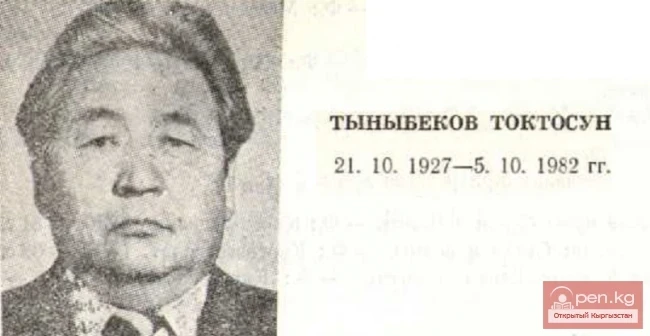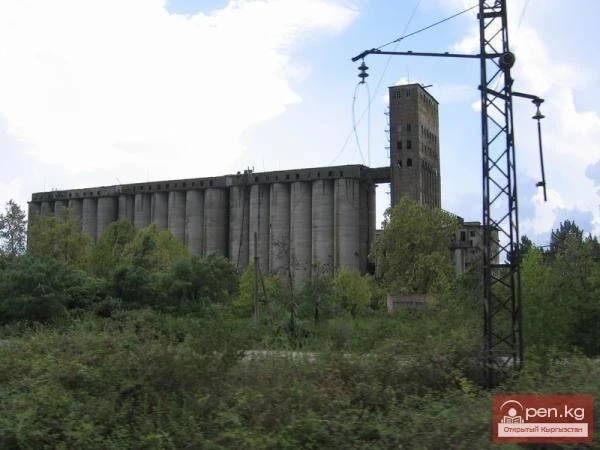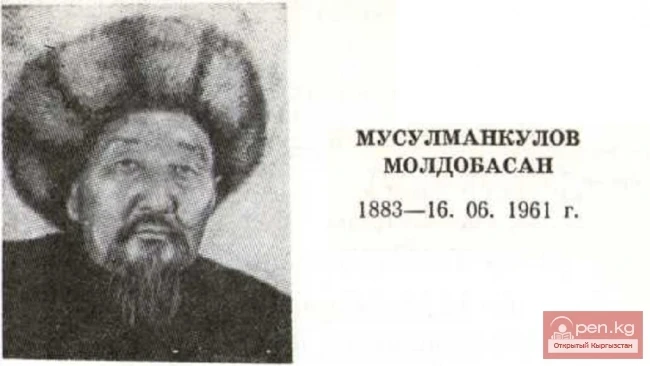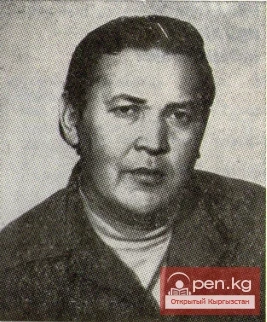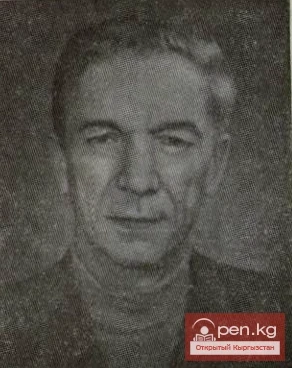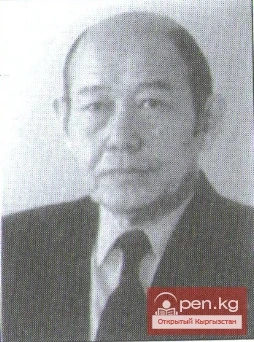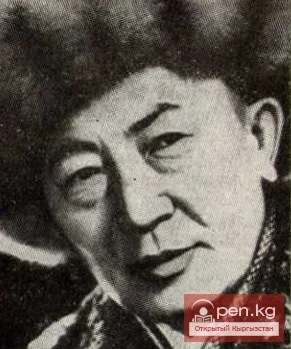
Ryskulov Muratbek
Film actor. People's Artist of the USSR (1958). Laureate of the State Prize of the Kyrgyz SSR named after Toktogul (1967). Member of the Communist Party of the Soviet Union since 1947. Born on December 6, 1909, in the village of Chayek, Jumgal District, Naryn Region, in a peasant family; died on February 1, 1974, in the city of Frunze. After finishing seven grades of school, he worked on a collective farm. In 1936, he entered the theater studio at the Kyrgyz Drama Theater.
One of the remarkable heirs of the traditions of Kyrgyz folk oral-poetic creativity, M. Ryskulov demonstrated natural theatrical talent from his first steps on stage.
His early works: the kurbash Mомуш in "Altyn-Kyz" by V. Vlasov and V. Fere (text by poet J. Bokonbaev), the traitor Alymbai in "Ajal-orduna" by D. Turusbekov (music by A. Maldybaev, V. Vlasov, V. Fere), and the rich Choybek in "Goremychnaya Kakoy" by M. Tokobaev revealed the artist's impeccable knowledge of the life and customs of his native people.
To his worldview and perception of the world, he brought images created from translated plays — "The Tricks of Scapin" by J. Molière (Skano), "Twelfth Night" by W. Shakespeare (Sir Toby), "The Storm" by A. N. Ostrovsky (Dikoy).
In the 1940s and 1950s, having mastered professional skills, M. Ryskulov, in the roles of the khan Tsiyitbek in the play "Kurmanbek" by K. Djantoshev, the governor in "The Inspector General" by P. Gogol, Morphy in "The Russian Question" by K. Simonov, Bondarev in "The Sandy Slope" by T. Abdumunov, Valko in "The Young Guard" by A. Fadeev, Kanibek in "Kanibek" by K. Djantoshev, and Izakul in "Kychane" by Sh. Beyshenaliev, fully manifested the talent of a psychological artist capable of exploring the complex inner world of people from past eras and his contemporaries.
A significant role in the creative growth of the actor during this period was his work with directors A. Svistunov and I. Borov on the images of Othello ("Othello" by W. Shakespeare), Shadrin ("The Man with a Gun" by N. Pogodin), and Yegor Bulichev ("Yegor Bulichev and Others" by M. Gorky). This helped M. Ryskulov achieve true heights in realistic art.
In the 1960s, the mature mastery of the outstanding artist became a reliable support and a guarantee of success for all the ideas of young Kyrgyz playwrights and directors. His magnificent performance in the role of Asylbek ensured great success for the first play by B. Zhakiev, "Fate of the Father" (1960). The artist created a truthful, impressive image of a man courageously overcoming severe life trials.
A true event in the history of the development of Kyrgyz theater was M. Ryskulov's performance as King Lear in the play "King Lear," staged by the young director J. Abdykadyrov in 1963. In his interpretation of the Shakespearean hero, the actor introduced the theme of the necessity to fight against inhumanity and an optimistic belief in a better future. The famous monologue of Lear he read with great elevation in his native language from the stage of the London theater "Unity" during the celebration of the 400th anniversary of W. Shakespeare's birth.
His rich life and theatrical experience, along with the breadth of his creative range, predetermined M. Ryskulov's successful work in Kyrgyz artistic cinematography. He is rightly considered a pioneer of this new art form for national culture. As early as 1949, he played the role of the old man Vaal in the film "Alitet Goes into Years" by M. Donskoy. In 1955, the actor skillfully portrayed two characters at once: the collective farm chairman Tugelbaev and the yaban Asan in the film "Saltanat" by V. Pronin. He then appeared in the films "Ilya Muromets" (1956, khan's advisor Nevrui) by A. Ptushko, "The Forty-First" (1956, old Kazakh) by G. Chukhrai, "The Song of the Herdsman" (1957, herdsman Badma) by A. Frolov, all produced at the Mosfilm studio. It was only natural for M. Ryskulov to participate in the filming of the first film of the Frunze Film Studio, "My Mistake" (1957) by I. Kobyzyev.
The skills acquired in the theater to penetrate the inner world of the hero were also evident in the actor's work on the images of Ashirbay, Sarygul, and Kerimbay in the films "The Girl of Tian-Shan" (1961) by A. Ochkina, "Far in the Mountains" (1958) by A. Karpov, "Toktogul" (1959) by V. Nemolyaev. The justice and humanity of revolutionary ideals were embodied by the actor in the heroic character of the Bolshevik Kozubai, commander of the volunteer detachment in the film "Jura" (1964) by A. Bergunker.
The assistance provided by this remarkable master to young Kyrgyz directors T. Okeeva, M. Ubukeev, and G. Bazarov, who entered cinema in the 1960s, is invaluable. M. Ryskulov starred in T. Okeeva's films "The Sky of Our Childhood" (1966) and "Bow to the Fire" (1972).
In 1969, M. Ryskulov played the role of the cruel khan Zhantai in the television film "Ak-Meyor" by M. Ubukeev.
In G. Bazarov's film "Street" (1972), M. Ryskulov created the image of the old peasant Boroshava.
Awards — Honorary Diploma of the Supreme Soviet of the Kyrgyz SSR (1959). Order of the Red Banner of Labor (1958). Order of Lenin (1971).
Member of the Union of Soviet Writers since 1958.
BOOKS, ARTICLES, REVIEWS
Years of Creative Search.— "Komsomolets of Kyrgyzstan," 1961, February 1.
Our Teacher.— "Soviet Kyrgyzstan," 1963, January 18.
A Great Goal.— "Soviet Kyrgyzstan," 1966, January 16.
For the First Time and Forever.— "Literary Kyrgyzstan," 1967, No. 5, pp. 25-26.
Today — It's Common.— "Culture and Life" (in English, German, French), 1968, No. 3, p. 6.
Unforgettable.— "Soviet Kyrgyzstan," 1972, December 30.
Our Teachers.— "Theater," 1972, No. 12, pp. 104-105.
Hello, Young Tribe! — "Komsomolets of Kyrgyzstan," 1972, March 3.
Developing the Best Traditions.— "Soviet Kyrgyzstan," 1972, March 26.
Both Mastery and Inspiration.— "Soviet Culture," 1974, February 12.
WORKS ON THE ARTISTRY OF THE ACTOR
Abdumunov T. Mighty Talent.— "Soviet Kyrgyzstan," 1972, December 30.
Barshay A. The Omnipotence of Talent.— "Soviet Moldova," 1967, February 19.
Borov A. Master of Drama.— "Kazakhstan Truth," 1958, October 14.
Brudny D. Outstanding Master of the Kyrgyz Stage.— "Literary Kyrgyzstan," 1959, No. 6, pp. 68-72.
Brudny D. The Path of the Actor. F., Kyrgosizdat, 1959.
Brudny D. The Elder of the Acting Guild.— "Soviet Screen," 1973, No. 12, pp. 8-9.
Brudny D. Muratbek Ryskulov. M., VTO, 1974.
Djantoshev K. The Path on Stage.— "Pravda," 1956, December 28.
Zhakiev B. A Word About the Actor.— "Evening Frunze," 1979, December 18.
Zalutskiy A. King Lear from Chayek.— "Evening Frunze," 1974, February 4.
Imankulov D. Muratbek Ryskulov. F., Kyrgosizdat, 1958.
Imankulov D. Our Muratbek. F., "Kyrgyzstan," 1970.
Imankulov D. The Path to the Peaks.— "Theatrical Life," 1972, No. 17, pp. 22-26.
Imankulov D. The Elder of the Acting Guild (Muratbek Ryskulov).— Collection "Cinema of Soviet Kyrgyzstan." M., "Art," 1979, pp. 257-266.
Imankulov D. The Memory of a Great Actor.— "Evening Frunze," 1975, November 11.
Kydykeeva B., Jumadylov S., Ashimov K. The Art of a Great Actor.— "Soviet Kyrgyzstan," 1978, March 25.
Semenova M. People's Artist.— "Soviet Kyrgyzstan," 1955, February 13.
